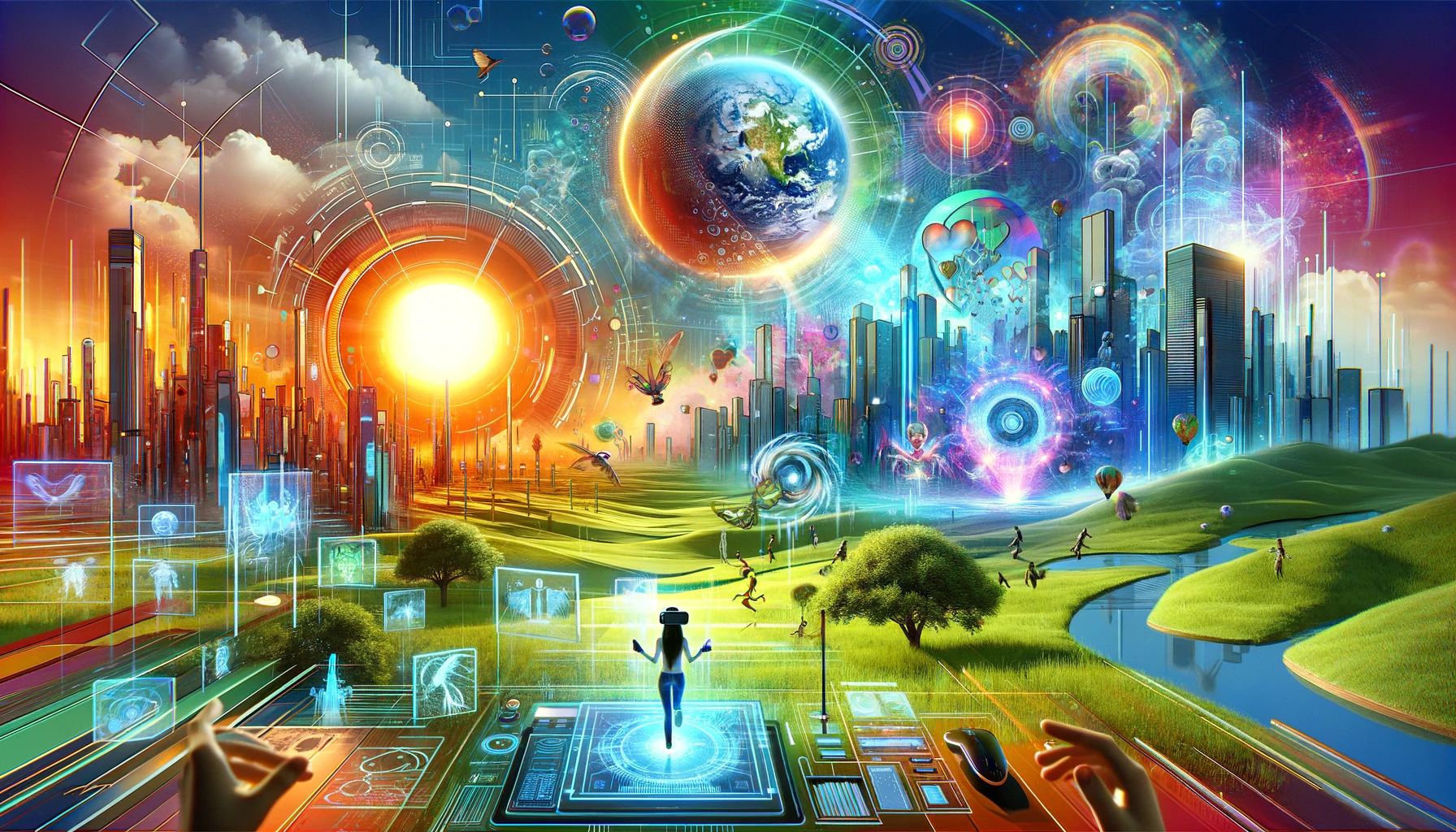Welcome to Genesis Reboot: Shaping a New Digital Existence
Embark on a journey where ancient narratives meet futuristic technology at Genesis Reboot. Here, ‘Genesis’ isn’t just about the beginning of the world; it’s about its digital rebirth. We’re not just recreating reality; we’re pioneering its digital counterpart. In our vision, ‘Reboot’ signifies a transformative leap into the Metaverse – a new realm of Virtual Reality. Join us in this groundbreaking endeavor to digitize and redefine our world, opening doors to limitless possibilities in a new, virtual universe.
What does Genesis mean?
The Book of Genesis, as per the Christian tradition, is the first book of the Bible and serves as the foundational narrative for both Judaism and Christianity. It covers a wide range of themes and stories, with the most prominent being the creation of the world. Here are key elements of the creation story and additional themes in Genesis:
- Creation of the World: Genesis begins with the creation narrative, where God creates the universe, Earth, and all life over six days. Key aspects include:
- Day 1: Creation of light and the separation of light from darkness.
- Day 2: Separation of the sky and sea.
- Day 3: Creation of dry land and vegetation.
- Day 4: Creation of the sun, moon, and stars.
- Day 5: Creation of sea creatures and birds.
- Day 6: Creation of land animals and humans, with humans being made in the image of God.
- Day 7: God rests, blessing the seventh day and making it holy.
- Garden of Eden: The narrative continues with the story of Adam and Eve in the Garden of Eden. It details their creation, life in the garden, the temptation by the serpent, and the eventual fall from grace leading to their expulsion from Eden.
- Cain and Abel: The story of Adam and Eve’s sons, Cain and Abel, introduces the theme of sin and fratricide, where Cain kills Abel out of jealousy.
- Noah’s Ark: The narrative of Noah and the Great Flood illustrates God’s disappointment with human wickedness and his decision to cleanse the earth, sparing only Noah, his family, and pairs of each animal species.
- The Tower of Babel: This story explains the diversity of languages in the world. It tells of humanity’s attempt to build a tower reaching heaven and God’s intervention to confuse their languages, leading to their dispersal across the earth.
- Patriarchs of Israel: The latter part of Genesis focuses on the patriarchs Abraham, Isaac, Jacob, and Joseph. Their stories include themes of covenant, faith, and the relationship between God and his chosen people.
- Themes: Genesis addresses themes like creation, sin, redemption, covenant, and faith. It sets the stage for the narrative and theological themes that run throughout the Bible.
Genesis is a foundational text for understanding Christian religious beliefs and has been subject to various interpretations over centuries, both within religious and academic contexts. Its influence extends into literature, art, philosophy, and culture broadly.
What does Reboot mean?
The term “reboot” typically refers to the process of restarting a computer system. In a broader context, it can mean restarting any electronic device or system. When you reboot a system, it clears its memory, resets tasks, and reloads the operating system or main software.
In a more metaphorical sense, “reboot” is often used to describe a fresh start or significant change in an existing project or idea, akin to a reset or renewal. This usage is common in various fields like entertainment, where a movie franchise might be “rebooted” with a new perspective or direction, or in personal development, where someone might “reboot” their life with significant changes to their habits or lifestyle.
What does Genesis + Reboot symbolize?
“Genesis + Reboot” symbolizes a fusion of beginning and renewal. “Genesis,” referencing the biblical creation of the world, symbolizes the inception or origin of something. “Reboot,” typically used in the context of technology, implies a restart or a fresh start, often with improved features or a new perspective. Together, they suggest the idea of creating something new while revitalizing or transforming an existing concept or world – in this case, reinventing our physical reality in a new, digital and virtual form.
a New World, a New Start!
